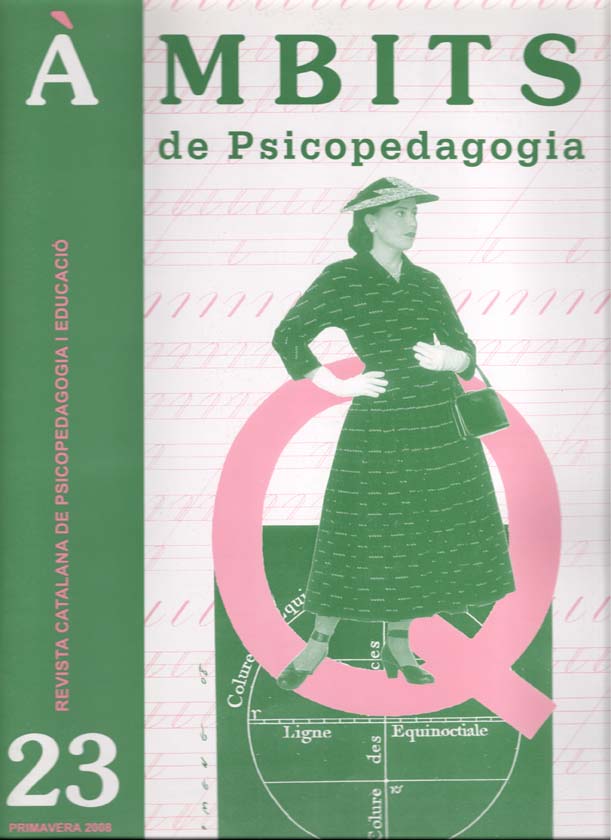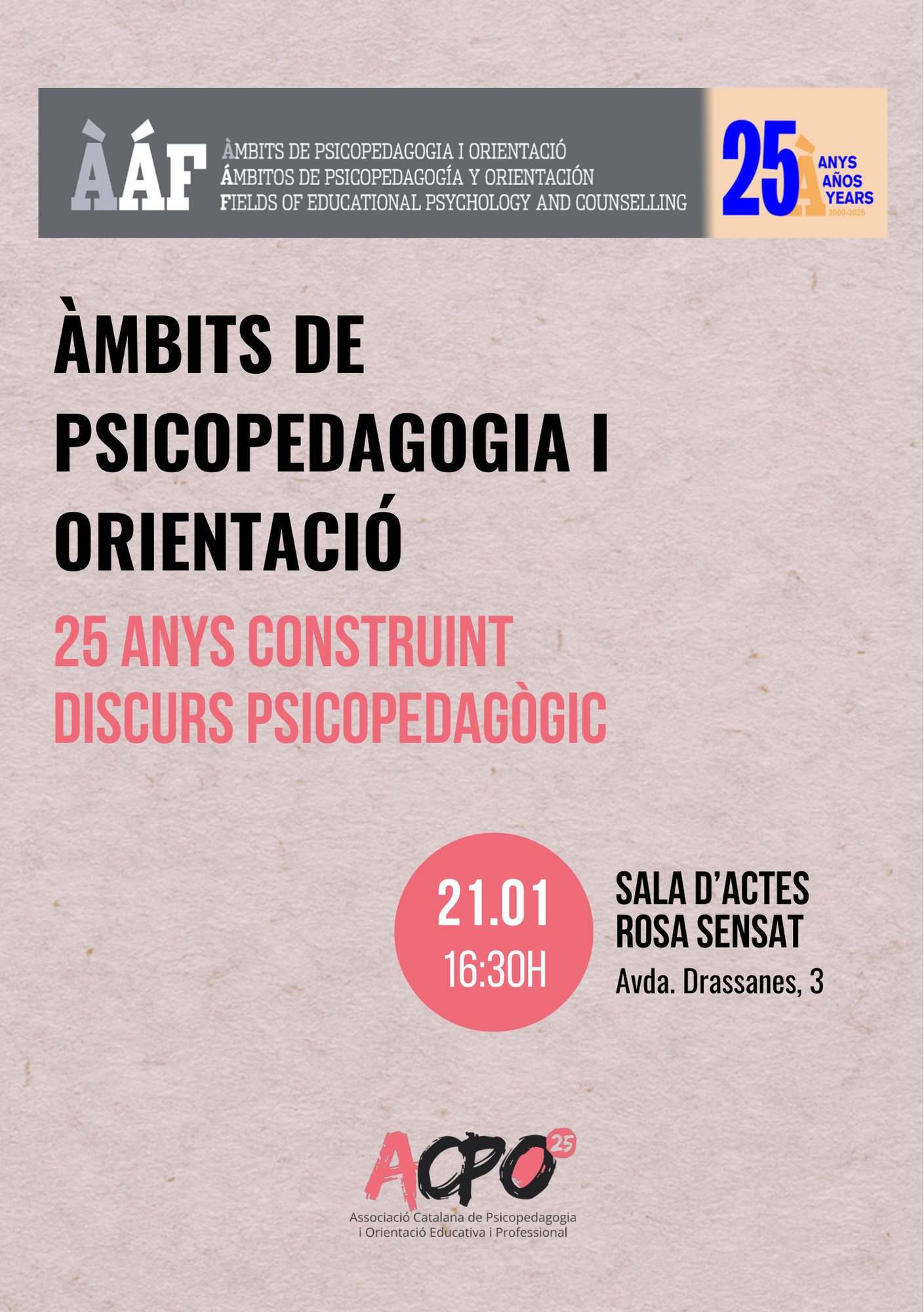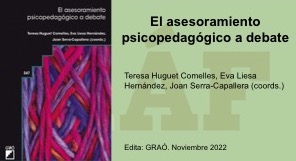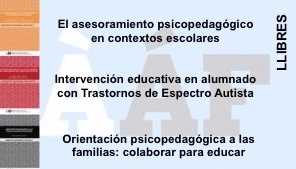El suport conductual positiu. Una perspectiva pel tractament de les conductes problemàtiques
Resum
Les escoles han de fer front, cada vegada més, a determinades conductes problemàtiques que presenten alguns alumnes. Tradicionalment, el tractament d’aquestes conductes s’ha centrat en la seva disminució. No obstant això, la percepció actual que es té d’aquestes conductes exigeix nous plantejaments. El Suport Conductual Positiu representa una perspectiva diferent pel tractament de les conductes problemàtiques a l’escola. És un enfocament essencialment educatiu, sistèmic, proactiu i positiu. L’objectiu d’aquest article és presentar el que s’entén per suport conductual positiu, les seves característiques principals i els components que el defineixen.
Referències
Bambara, L. i Knoster, T. (1998). Designing positive behavior supports plans. Washington: American Association on Mental Retardation.
Crone, D. i Horner. R. (2003). Building positive behavior support systems in schools. Functional behavioral assessment. New York: The Guilford Press.
Crone, D., Horner, R. i Hawken, L. (2004). Responding to problem behavior in schools. The Behavior education program. New York: The Guilford Press.
Dunlap, G. i Carr, E.G. (2007). Positive behavior support and developmental disabilities: a summary and analysis of research. Dins S.L. Odom, R. Horner, M. Snell i J. Blacher (editors), Handbook of developmental disabilities. New York: The Guilford Press.
Dyson, A. (2001). Special needs in the twenty-first century: where we’ve and where we’re going. British Journal of Special Education, 28 (1), 24-29.
Font, J. (2001). El suport conductual positiu: un model d’intervenció pel tractament de les conductes problemàtiques. Suports, 5 (1), 44-54.
Haager, D., Klingner, J. i Vaughn, S. (2007). Evidence-based reading practices for response to intervention. Baltimore: Paul H Brookes.
Horner, R., Sugai, G., Todd, A. i Lewis-Palmer, T. (2005). Schoolwide positive behavior support. Dins L. Bambara i L. Kern, Individualized Supports for students with problem behavior. New York: The Guilford Press.
Jackson, L. i Veeneman Panyan, M. (2002). Positive behavioral support in the classroom. Principle and practices. Baltimore: Paul H Brookes.
Lewis, T. i Sugai, G. (1999). Effective behavior support: A systems approach to proactive schoolwide management. Focus on Exceptional Children,
Norwich, (2007). Dilemmas of inclusion and the future of education. En R. Cigman (Ed.), Included or excluded? The challenge of the mainstream for some SEN children (pp., 69-84). London: Routledge.
Preciado, J. i Sugai, G. (2004). Suport conductual positiu a nivell d’escola: una revisió de les seves característiques crítiques. Suports, 8 (2), 148-156.
Preciado, J. i Sugai, G, (2007). Donar suport a l’alumnat amb problemes conductuals des d’un enfocament centrat en la funció. Suports, 11 (1), 4-11.
Schalock, R. (2006). Resultats personals per als alumnes amb discapacitat intel·lectual. Suports, 10 (2), 60-65.
Sugai, G., Horner, R.H., Dunlap, G, Hieneman, M., Lewis, T.J., Nelson, C.M, Scott, T., Liaupsin, C., Sailor, W., Turnbull, A.P., Turnbull, H.R., Wickham, D. Wilcox, B i Ruef, M. (2000). Applying positive behavior support and functional behavioral assessment in schools. Journal of Positive Behavior Interventions, vol. 2, nº 3, 131-143.
Sugai, G., Horner, R,H. i Sprague, J.F, (1999). Functional-assessment-based behavior support planning: Research to practice to research. Behavioral Disorders, vol. 24, nº 3, 253-257.
Warnock, M. (2005). Special educational needs: a new look. Londres: Philosophy and Education Society of Great Britain.
Descàrregues
Publicades
Número
Secció
Llicència
Els autors/ores conserven els drets d'autor i concedeixen a la revista el dret de primera publicació de l'obra, registrada sota una llicència Creative Commons Reconeixement-NoComercial-Sense Obra Derivada. Aquesta llicència permet la descàrrega de les obres, i que es puguin compartir amb altres sempre que se’n reconegui l'autoria, però no permet que siguin modificades de cap manera, ni ser utilitzades amb finalitat comercial.

















